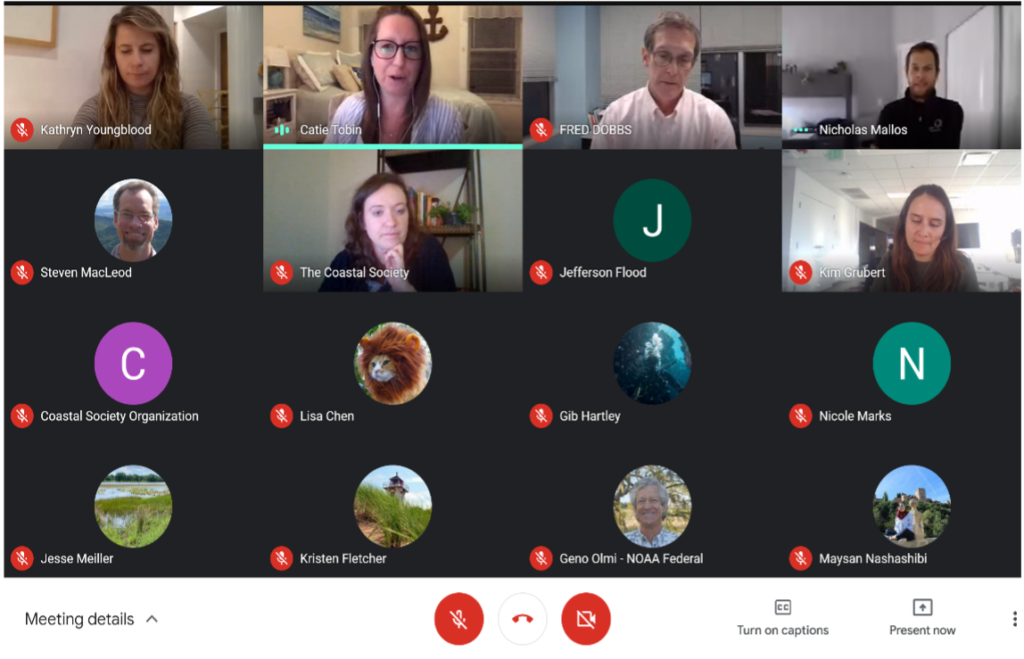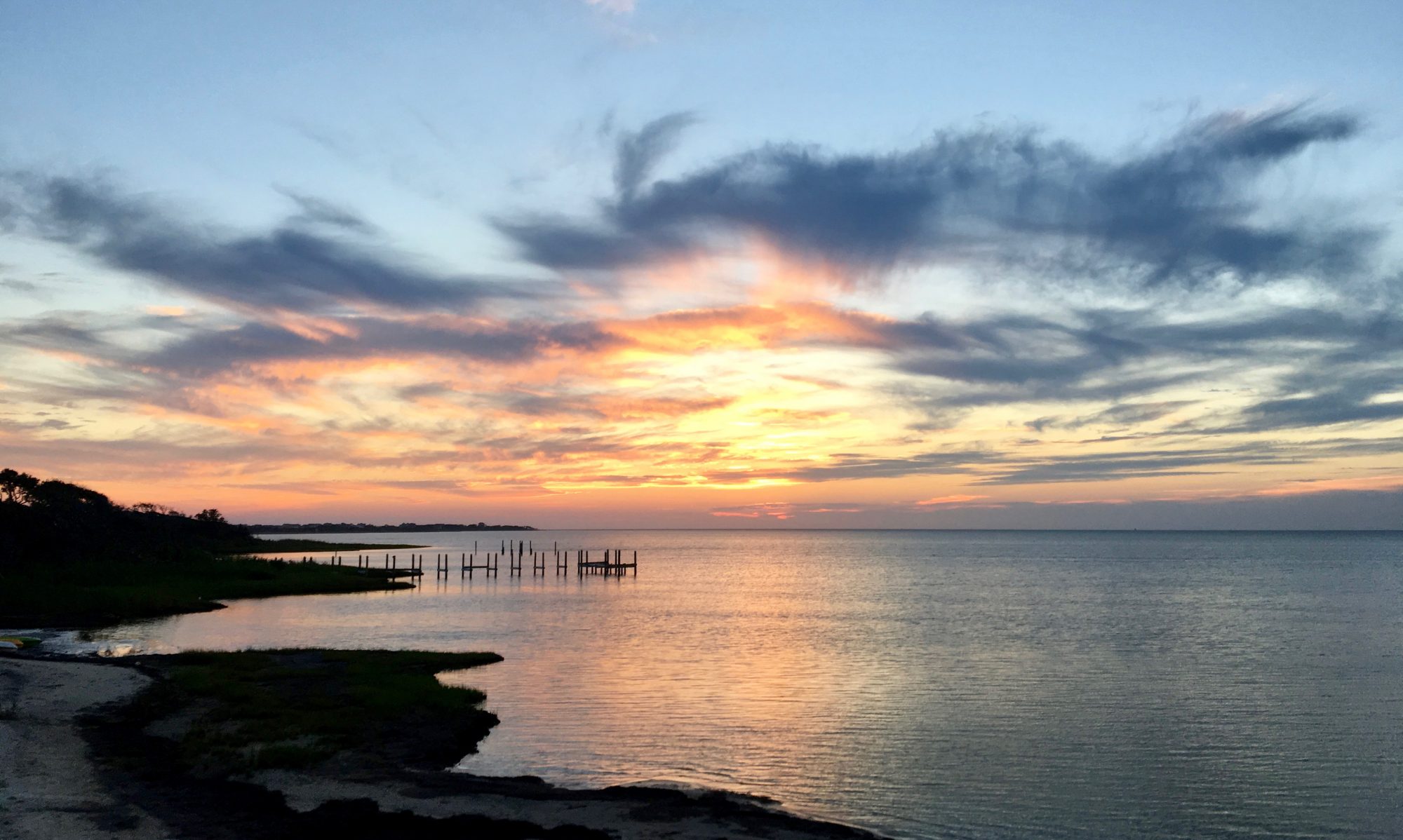By: Ashley Gordon and Steven MacLeod
As of 2015, it was estimated that 8 million metric tons of plastic enter the ocean annually, which is about one garbage truckload of plastic per minute (Jambeck et al., 2015). This shocking statistic was shared to kick-off presentations at The Coastal Society’s November 12, 2020 Coastal Connections meeting, Plastic Pollution: Coastal and Marine Trends. Presentations from three panelists highlighted science, policy, and stakeholder engagement efforts related to coastal and marine plastic pollution. The session was moderated by Catherine Tobin, Ph.D. candidate at the University of Massachusetts Boston, whose research focuses on the effects of microfibers on oysters.
Nicholas Mallos provided an overview of the magnitude of the global plastic pollution issue. Mr. Mallos oversees the Ocean Conservancy’s global portfolio of work on marine debris as Senior Director of the Trash Free Seas Program. Even with current plastic reduction commitments from governments and industries, it is estimated about a cargo ship’s worth of plastics (by weight) will enter lakes, rivers, and our ocean daily by 2030, which equals about 53 million metric tons annually (Borrelle et al., 2020). Reducing plastic waste, increasing waste management efficiency, and expanding cleanup efforts are key actions recommended to reduce plastic pollution. This Ocean Conservancy video provides more information on recent plastic research, and Mr. Mallos’ presentation is available here.
Fred Dobbs focused his presentation on microplastic pollution. Dr. Dobbs is a marine microbial ecologist and Chair of the Department of Ocean, Earth, and Atmospheric Sciences at Old Dominion University. Microplastics (particles less than 5mm) can be manufactured, or result from the breakdown of larger plastics, and are ingested by marine organisms, including even deep-sea amphipods. Dr. Dobbs highlighted emerging research related to microplastics, including potential human health risks from eating raw oysters containing plastics harboring a pathogenic biofilm. Recent research has indicated marine plastics may disseminate antibiotic-resistance genes through biofilms, which serve as a habitat for bacteria and human pathogens. Dr. Dobbs presentation is available here.
Katherine Youngblood provided an overview of the Marine Debris Tracker app, a citizen-science, open-data initiative for collecting geospatial litter data. Ms. Youngblood is a Research Engineer at the University of Georgia New Materials Institute in the Jambeck Research Group and the Citizen Science Director of Marine Debris Tracker. This video provides more information on the Debris Tracker app, which has been used to collect data in multiple countries, including those along the Ganges River as part of the National Geographic Sea to Source expedition. A new Plastic Pollution Action Journal provides guidance for logging individual plastic-use and recommending actions to reduce plastic-use. Ms. Youngblood’s presentation is available here.
Following the guest speakers’ presentations, meeting participants posed questions related to the following topics:
- Communicating the upstream impacts of plastic pollution.
- Policies for addressing plastic pollution.
- Recent trends in plastic pollution as a result of the COVID-19 pandemic, including increased personal protective equipment (PPE) waste.
- Actions for citizen engagement, including reducing single-use plastics, researching local recycling programs, and talking to local officials.
For more information on other Coastal Connections sessions, including our recent February session focused on coastal communities and offshore wind development, check out the TCS Coastal Connections webpage. If you are interested in learning more or volunteering to help develop the Coastal Connections series, please email us at TCSconnections@thecoastalsociety.org.
References:
S.B. Borrelle, J. Ringma, K. L. Law, C. C. Monnahan, L. Lebreton, A. McGivern, E. Murphy, J. Jambeck, G.H. Leonard, M. A. Hilleary, M. Eriksen, H. P. Possingham, H. De Frond, L. R. Gerber, B. Polidoro, A. Tahir, M. Bernard, N. Mallos, M. Barnes, C. M. Rochman, Predicted growth in plastic waste exceeds efforts to mitigate plastic pollution. Science. 369, 1515-1518 (2020).
J.R. Jambeck, R. Geyer, C. Wilcox, T. R. Sigler, M. Perryman, A. Andrady, R. Narayan, K. L. Law, Plastic waste inputs from land into the ocean. Science 347, 768-771 (2015).
Photo courtesy of Melanie Perello


